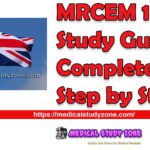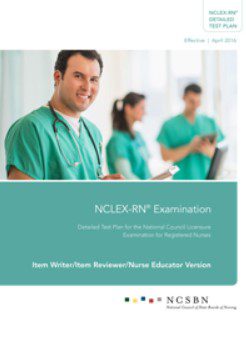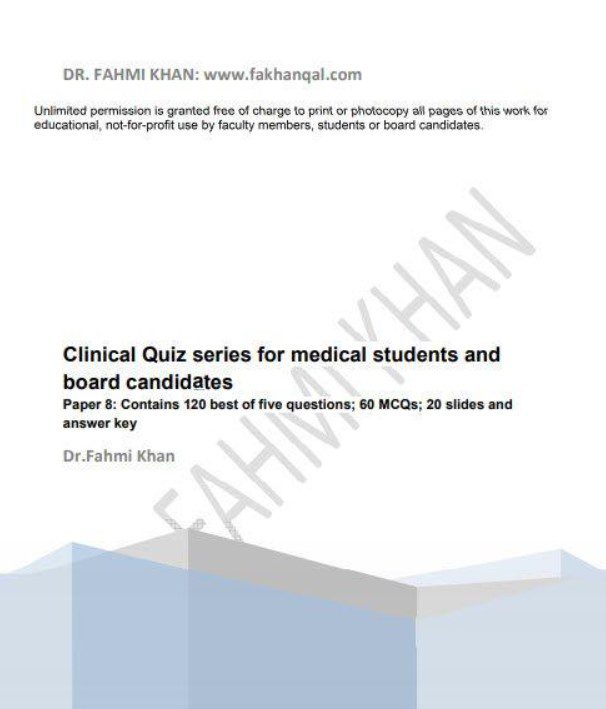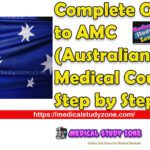To practice medicine in Canada, international medical graduates are required to complete the following exams:
1. Medical Council of Canada Qualifying Examination (MCCQE) Part I and Part II
2. National Assessment Collaboration (NAC) Examination
3. Language proficiency test – International English Language Testing System (IELTS) or the Occupational English Test (OET)
The MCCQE Part I and Part II are required for licensure to practice medicine in Canada and assess a candidate’s knowledge and skills in medical practice. The NAC exam assesses a candidate’s readiness to enter a Canadian residency program and is used by Canadian residency programs to rank and select candidates for interviews. The language proficiency test is required to demonstrate that a candidate has the necessary language skills to communicate effectively with patients and colleagues.

Syllabus:
The Medical Council of Canada Qualifying Examination (MCCQE) Part I and Part II are comprehensive exams that assess a candidate’s knowledge and skills in medical practice. The following is a brief overview of the syllabus for each exam:
MCCQE Part I:
– Population health and ethics
– Anatomy
– Physiology
– Biochemistry
– Pathology
– Microbiology
– Pharmacology
– Pediatrics
– Obstetrics and gynecology
– Psychiatry
– Surgery
– Internal medicine
MCCQE Part II:
– Medical expert
– Communicator
– Collaborator
– Manager
– Health advocate
– Scholar
The MCCQE Part II is a clinical skills exam that assesses a candidate’s ability to apply medical knowledge and skills in a clinical setting. The exam consists of 16 cases that cover a range of medical specialties and situations. The cases are designed to test a candidate’s ability to gather information, make a diagnosis, develop a management plan, and communicate effectively with patients and colleagues.
For more detailed information about the syllabus for each exam, you can visit the Medical Council of Canada website.
More Details about Syllabus:
Here is a more detailed overview of the syllabus for each subject area on the MCCQE Part I and Part II exams:
MCCQE Part I:
– Population health and ethics: social determinants of health, epidemiology, health promotion, health systems, medical ethics, legal issues
– Anatomy: gross anatomy, neuroanatomy, embryology
– Physiology: cardiovascular, respiratory, renal, gastrointestinal, endocrine, musculoskeletal, nervous systems
– Biochemistry: metabolism, molecular biology, genetics
– Pathology: general pathology, systemic pathology, laboratory medicine
– Microbiology: bacteriology, virology, mycology, parasitology
– Pharmacology: pharmacokinetics, pharmacodynamics, drug interactions, adverse drug reactions, prescribing
– Pediatrics: growth and development, neonatology, infectious diseases, respiratory disorders, gastrointestinal disorders, neurodevelopmental disorders, oncology
– Obstetrics and gynecology: pregnancy, labor and delivery, postpartum care, gynecologic disorders, reproductive endocrinology and infertility
– Psychiatry: normal development, psychiatric disorders, substance use disorders, psychotherapeutic interventions, legal issues
– Surgery: general surgery, orthopedic surgery, neurosurgery, plastic surgery, ophthalmology, otolaryngology, urology, vascular surgery
– Internal medicine: cardiology, dermatology, endocrinology and metabolism, gastroenterology, hematology, immunology, infectious diseases, medical oncology, neurology, palliative care, respirology, rheumatology
MCCQE Part II:
– Medical expert: history and physical examination, investigations, diagnosis, management, prognosis, prevention
– Communicator: patient-centered communication, interprofessional communication, communication with families and caregivers
– Collaborator: team-based care, interprofessional practice, conflict resolution, leadership
– Manager: resource management, quality improvement, patient safety, health policy, health economics
– Health advocate: health promotion, disease prevention, social determinants of health, public health, advocacy
– Scholar: lifelong learning, evidence-based medicine, critical appraisal, research methodology, ethics and professionalism
I hope this helps you understand the syllabus for each exam!
Study materials:
There are a variety of study materials available for the MCCQE Part I and Part II exams, including textbooks, review courses, and practice question banks. The Medical Council of Canada recommends that candidates use a variety of resources to prepare for the exams, including textbooks, medical journals, and online resources. Here are some popular study materials that candidates may find helpful:
MCCQE Part I:
– Toronto Notes: a comprehensive review book that covers all subject areas on the exam
– CanadaQBank: an online question bank with over 4,000 practice questions and detailed explanations
– MedQuest: an online review course that includes video lectures, practice questions, and feedback from medical experts
– First Aid for the USMLE Step 1: a popular review book that covers many of the same subject areas as the MCCQE Part I
MCCQE Part II:
– MCCQE Part II Clinical Skills Handbook: a guidebook that provides detailed information about the exam format and expectations
– MCCQE Part II Clinical Skills Videos: a series of videos that demonstrate the exam format and provide tips for success
– CanadaQBank: an online question bank with over 1,000 practice cases and detailed feedback
– MedQuest: an online review course that includes video lectures, practice cases, and feedback from medical experts
These are just a few examples of the many study materials available for the MCCQE exams. Candidates should choose the resources that work best for their learning style and budget. It’s also important to start preparing early and to set realistic goals for study time and progress.
Writing the MCCQE Part 1
The MCCQE Part 1 assesses your knowledge of the principles of Canadian medicine in different areas such as medicine, pediatrics, surgery, obstetrics and gynecology, and ethics. This Canadian exam is taken in a day and consists of MCQs and Clinical Decision Making cases.
The MCQ component has 210 questions which you have to finish in four hours. There is no scheduled break during this part of the examination, but you can choose to stop and rest if you want to. However, your timer keeps running, and once 4 hours elapse, this part of your examination stops automatically.
After your MCQ exam, you have a mandatory 45 minutes break then the CDM (Clinical Decision Making) cases part begins. The CDM section lasts for three and a half hours. It has 38 cases, and the questions can number anywhere from 60 to 70.
The CDM case section is as much a test of your ability to follow instructions as it is a test of clinical competence. The questions here are structured in such a way that each one has a specific instruction that you must follow, or you will lose your marks. Some questions may contain more than one right answer, but you’ll have to pick only one. Additionally, some questions will require you to select the most accurate option, and some will need you to actually write down an answer. The CDM section is tricky, but stick to instructions, and you got it on lockdown.
Attempting MCCQE Part 1
You have the liberty to try the MCCQE Part 1 as much as four times. However, on the third try, you have to wait for a year before trying again. If you still fall short and want to apply again for the fifth time, you must obtain special permission from the council regulating the exam, the MCC (Medical Council of Canada).
Note that you will need at least a 226 to pass. To make sure you pass, you can use our resources at CanadaQBank.
Requirements to apply for the MCCQE Part 1 exam
To apply for the MCCQE Part 1 exam, you must-
● have graduated from a medical school that has been certified by the Committee on Accreditation of Canadian Medical Schools (CACMS) or contained in the World Directory of Medical Schools
● have a medical degree that is already verified or at least is being verified
How to schedule your exam?
The process of scheduling your MCCQE Part 1 exam is pretty straightforward. First and foremost, you have to create a physiciansapply account, submit an application and wait for it to go through. You should receive an email.
After receiving a confirmation email, you can visit the Prometric website and schedule your examination. The entire process costs around $1,330.
At CanadaQBank, we have over 3100 questions for you to choose from in several areas under medicine. Every answer has detailed explanations, and you can even simulate an exam to test yourself.
If you any question regards this whole process then write it in the comment box below. Or you can email us.


![OET Study Materials 2023 Free Download [Videos + Audios + PDFs] OET Study Materials 2023 Free Download [Videos + Audios + PDFs]](https://medicalstudyzone.com/wp-content/uploads/2023/03/OET-Study-Materials-2023-Free-Download-Videos-Audios-PDFs-150x150.jpg)





Leave a Reply